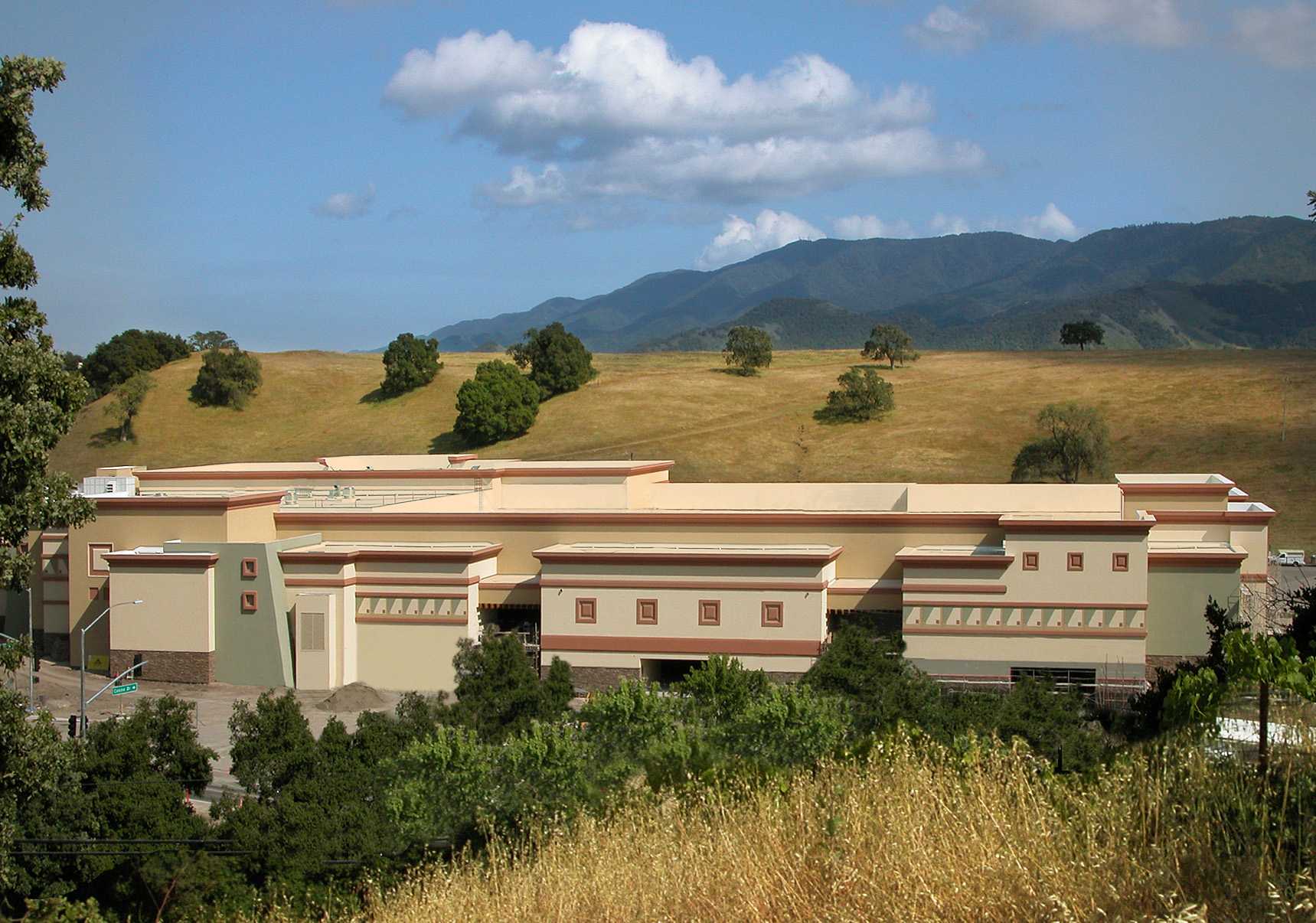 Another Stereotype of the Month entry:
Another Stereotype of the Month entry:
 Another Stereotype of the Month entry:
Another Stereotype of the Month entry:
Thursday, June 12, 2003
Thinking It Through
Can Constitution survive Indian casinos?
A famous political scientist once noted that in America, when we are deliberating about what government action to take, we are obliged to ask two questions, not just one, as practically every other nation does.
Not only do have to consider whether the government ought to take some action but also whether that action is permitted under our Constitution.
Unfortunately, our representatives have ceased asking the second question about certain sections of the Constitution.
For example, according to Article I, Section 8, clause 3, Congress has the power "to regulate commerce with foreign nations, and among the several states, and with the Indian tribes."
Until the New Deal of the 1930s, and particularly the Great Society of the 1960s, "regulat[ion]" meant establishing the terms under which Americans could engage in trade.
But in the last century we got into the habit of construing anything and everything as "commerce among the states," even when no commercial transaction took place.
We did this in order to permit the federal government to do something it could not do otherwise and particularly to remove barriers to the full exercise of civil rights by all Americans.
But, as James Madison and other founding fathers warned, we are as apt to lose our liberties for the sake of beneficent ends as we are to promote harmful causes — nay, more, as we tend to shut down our critical faculties in a good cause.
Before the 1960s, the authors of federal legislation would routinely cite some provision of the Constitution to justify its introduction. But not even the most inveterate foes of the expansion of federal power do this anymore.
At first, our lawmakers stretched the meaning of the Constitution, for example, to require farmers to participate in federal grain storage programs or to require local businesses that rent public space to comply with federal civil rights laws, both upheld by the United States Supreme Court. But no stretching is required anymore. Congress passes whatever it wishes.
Add to this the trend toward granting Indian tribes exemption from the requirements of the U.S. Constitution and one gets the proliferation of Indian gambling casinos.
The constitutional basis for this is even more tenuous than the stretching of the commerce clause. At one time, Indian tribal sovereignty was limited to areas designated as reservations. But that approach has been discarded in favor of the elastic concept of sovereignty, based on where Indian tribes or bands are alleged to have lived at some time.
Also, burial grounds were once cited as evidence of residency. But today, when one's ethnic identity is not determined by rational means but by personal declaration, residency and therefore sovereignty magically appears wherever anyone with political power or influence says it does.
Of course, before Europeans colonized this continent, native tribes abounded. Largely nomadic and with no notions of private property, there were no barriers to their occupying any portion of it, save the claims of other tribes,
One has to be a serious student of the history of Indian tribe — or possess colossal nerve — not only to identify a person as a member of one but also to claim that an Indian band once lived someplace, such as Barstow or Lenwood. Next, some commercial enterprise with financial resources and legal savvy, translates that otherwise intangible claim into a lucrative enterprise.
Such a situation confronts our local community.
Most of us have been cool to legalized gambling for the obvious moral reasons, whether that stems from a religious doctrine or a concern for what the poor do with their money. Indeed, every attempt has been defeated up to this point.
But the current Barstow City Council was obviously greatly impressed by two gentlemen, one speaking for businesswoman Marian Ilitch (the commercial connection) and the other for his aunt (the Indian connection). The reactions ranged from guarded optimism to enthusiasm to speechlessness.
Obviously, the City of Barstow is in no position to determine federal policy on Indian gambling casinos. But the fact that the Constitutional text has been tortured to generate substantial financial opportunities for a few ought to put many citizens on guard against claims of untold economic growth and tax revenue that sound too good to be true.
How do we know, for instance, that we are dealing with the actual owners of professional hockey teams and national fast-food enterprises, as has been claimed?
Or with members of actual Indian tribes or bands? Or is it enough that we might pull millions of dollars into Barstow and surrounding communities?
Barstow has avoided so-called "adult" bookstores, which demonstrably contribute to the running down of communities. We have also turned aside the para-mutual gambling that Adelanto finally gave up on. Reassuringly, the evidence seems to be slight that Indian casinos contribute to crime problem or decline.
But does anyone doubt that legalized gambling, while it separates people from their money, also teaches them that it beats working for a living?
Last month a prominent national figure who crusades for moral virtue suffered a severe blow to his credibility when someone revealed that he has gambled for very high stakes at casinos. Was his offense merely hypocrisy? Or did he exhibit a vice that, if we cannot completely suppress it and restrict it to only one state in the Union, we ought not to encourage by simply adding to its prevalence?
Obviously, Indian casinos are bringing gambling to every state in the Union. Are we obliged to join the other lemmings racing into the sea?
• • •
Dr. Richard Reeb, retired this year after teaching journalism and political science at Barstow College for 33 years. He is the author of "Taking Journalism Seriously: 'Objectivity' as a Partisan Cause." (University Press of American 1999)

Rob's reply
Reeb seems confused on Constitutional law and Indian history. Let's help him out:
>> For example, according to Article I, Section 8, clause 3, Congress has the power "to regulate commerce with foreign nations, and among the several states, and with the Indian tribes." <<
Yes, and Congress does regulate commerce with Indian tribes. Specifically, it regulates Indian gaming through the Indian Gaming Regulatory Act. So what's the problem here?
>> Add to this the trend toward granting Indian tribes exemption from the requirements of the U.S. Constitution and one gets the proliferation of Indian gambling casinos. <<
What requirements? That Congress regulate commerce with Indian tribes? That's the only place the Constitution gives the US government any authority over Indian tribes. If Reeb thinks this authority is a stretch, he's welcome to consider the alternative: that Congress has no authority over Indian tribes, which were sovereign nations before Congress existed.
>> At one time, Indian tribal sovereignty was limited to areas designated as reservations. <<
It still is, generally speaking.
>> But that approach has been discarded in favor of the elastic concept of sovereignty, based on where Indian tribes or bands are alleged to have lived at some time. <<
No, it hasn't.
>> But today, when one's ethnic identity is not determined by rational means but by personal declaration, residency and therefore sovereignty magically appears wherever anyone with political power or influence says it does. <<
Ethnic identity is fluid by definition. People have never determined it by rational means. Reeb is ignorant of scientific and cultural history if he thinks otherwise.
See Why Spawn Isn't Black for more on the subject.
>> Largely nomadic and with no notions of private property, there were no barriers to their occupying any portion of it, save the claims of other tribes. <<
I don't know how you'd quantify it, but I'd say Indians were largely settled, not nomadic. Those that didn't have permanent villages often migrated between various camps (e.g., summer and winter camps), which doesn't make them nomadic.
As for private property, some Indians did have the notion of it, especially in the Northwest. Many more had the notion of territorial rights. What does Reeb think the Manhattan Indians sold to the Dutch for $24? What were Indians trading when they signed treaties with the US government? It was either their land or the rights to their land, that's what.
Reeb admits as much when he acknowledges that tribes claimed various areas or properties. How is that not an ownership right of sorts? Because the tribes didn't document their claims on paper? Because they were only the "uncivilized" claims of "savages," not the civilized claims of Euro-Americans?
Reeb's Eurocentrism is showing. He's trying to dismiss Native sovereignty as less real or important than Euro-American sovereignty. Why? Because he doesn't mind when his people take wealth from Indians, but does mind when the Indians take it back.
Related links
Too-powerful Indians
The facts about Indian gaming
|
. . . |

|
All material © copyright its original owners, except where noted.
Original text and pictures © copyright 2007 by Robert Schmidt.
Copyrighted material is posted under the Fair Use provision of the Copyright Act,
which allows copying for nonprofit educational uses including criticism and commentary.
Comments sent to the publisher become the property of Blue Corn Comics
and may be used in other postings without permission.